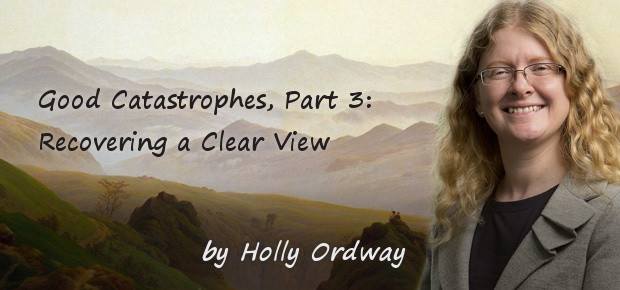
I’ve been arguing for the importance of a revitalized Catholic literature that is eucatastrophic, grounded in confidence of the truth of the Christian faith and nourished by the reality of the sacraments. I’ve repeatedly referenced Tolkien’s The Lord of the Rings as an example of what we need to do. But how are we to do it? Simply mimicking The Lord of the Rings on a surface level is most certainly not the answer. If it were, then the sheer quantity of Tolkien-derivative fantasy novels, not to mention Middle-earth film-tie-in merchandise, would have already put us into a full-fledged Catholic revival. This has observably not been the case. There is a lot to unpack about the influence of Tolkien (and that’s a large part of the academic writing I’m doing now), far more than I can even hint at in a blog series, but we can gain some valuable insight into the potential of Catholic writing from Tolkien’s essay “On Fairy-stories.”
In “On Fairy-stories,” Tolkien addresses fantasy literature specifically, but the conclusions that he draws can be applied to literature more broadly as well. He finds three particular functions of Fantasy: Recovery, Escape, and Consolation.
Recovery, Tolkien writes, “is a re-gaining—regaining of a clear view.” Tolkien avoids the philosophical question of “seeing things as they are” but the way in which he does so cleverly focuses the question on the more important issue: he defines Recovery as “‘seeing things as we are (or were) meant to see them’ – as things apart from ourselves.” In phrasing Recovery this way, Tolkien emphasizes the meaning behind reality: we are meant to see things in a certain way. By whom? By our Creator. Tolkien’s choice of synonyms emphasizes that we have lost something which once we had: re-gaining, re-covery, re-newal, re-turn. We once had the health and clarity of vision which we now lack; as Christians we understand that this is the result of the Fall, played out in our individual lives.
Tolkien identifies two related elements that contribute to our failure to see clearly: familiarity and possessiveness. Using the metaphor of a dirty, smudged window—whose film of grime obscures what we see through it—he says that we need “to clean our windows; so that the things seen clearly may be freed from the drab blur of triteness or familiarity—from possessiveness.”
When we think that we truly know something, or someone—for Tolkien’s analysis explicitly includes our relationships with people—then we often stop really seeing. We may talk about ideas but have ceased to recognize their reality on the ground; we may toss around words like love, forgiveness, justice, and reconciliation without grasping the messy, painful, transformative reality. In day-to-day relationships, we may no longer really see our family, friends, neighbors as themselves, but instead may see them instrumentally, in terms of what they can do for us (or how they get in our way). Indeed, Tolkien notes that our familiares are the “most difficult really to see with fresh attention, perceiving their likeness and unlikeness: that they are faces, and yet unique faces.”
Here, then, is one way that Catholic literature can move forward. It is important that we have literature that looks squarely at the brokenness of the world: yes. But we also need literature and poetry that allows readers to come away with a renewed sense of wholeness, of the dignity of each human being, and of the beauty of the creation that we are called to steward. We need stories that allow people to recognize in their own lives the potential to be made whole: for marriages, families, and friendships to be healthy and shaped as God made them to be; for our ‘daily bread’ to be tasted and savored once again.






Leave a Reply